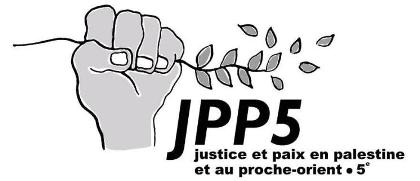Aujourd’hui, la situation est déjà des plus graves puisque le programme de distribution d’électricité est seulement de 4 heures de courant suivies de 12 heures de coupure, et ce, depuis l’arrêt de la seule centrale de production d’électricité dans la bande de Ghaza, le mois d’avril dernier.
La centrale en question est à l’arrêt faute de carburant. Face à cette nouvelle situation, le mouvement Hamas, qui contrôle la bande de Ghaza depuis l’été 2007, a mis en garde contre le risque d’explosion dans la bande de Ghaza dont la population vit une véritable crise humanitaire à cause du blocus qui lui est imposé depuis plus de dix ans par Israël.
Le mouvement Hamas a fait porter la décision israélienne de réduire ses fournitures d’électricité à la bande de Ghaza à l’Autorité palestinienne et au président Mahmoud Abbas personnellement. L’Autorité palestinienne avait effectivement annoncé le mois dernier qu’elle n’allait plus payer la facture d’électricité de la bande de Ghaza. L’électricité est, rappelle-t-on, fournie par Israël. Le mois d’avril dernier, l’Autorité palestinienne avait déjà refusé de ne pas prélever d’impôts sur les prix du carburant destiné à la centrale électrique. Suite à cela, le mouvement Hamas a décidé d’arrêter l’achat de ce carburant, ce qui a causé l’arrêt pur et simple de la centrale.
Avant l’arrêt de la centrale électrique, le programme de distribution était de 8 heures de courant suivies de 8 heures de coupure. Les coupures d’électricité dans la bande de Ghaza ont commencé en 2006 lorsque l’aviation israélienne avait bombardé la seule centrale électrique de l’enclave palestinienne suite à la capture par des combattants des brigades Ezzeddine Al Qassam, la branche armée du Hamas, du soldat franco-israélien Gilaad Shalit. Mais après le putsch armé et le contrôle de la bande de Ghaza par le mouvement Hamas, les pénuries en électricité sont le fruit de la division palestinienne plus qu’autre chose. C’est le cas encore aujourd’hui.
Manœuvres et calculs politiques
Pour l’Autorité palestinienne et le président Mahmoud Abbas, il faut incriminer le mouvement Hamas qui gouverne la bande de Ghaza et refuse la réconciliation. Pour elle, c’est au mouvement Hamas de subvenir aux besoins de la population. En d’autres termes, comme l’ont souvent répété des responsables de l’Autorité palestinienne, soit le mouvement Hamas prend toutes les responsabilités, soit il laisse le gouvernement d’entente nationale diriger.
Pour l’Autorité palestinienne, le mouvement Hamas gouverne la bande de Ghaza et il est responsable de la détérioration de la situation depuis 10 ans par son refus de réconciliation. L’idée de Mahmoud Abbas donc est claire : faire plier le Hamas.
Seulement, la population palestinienne paye les frais de cette lutte. «Près de 14 millions de dollars sont payés par l’Autorité palestinienne mensuellement depuis 10 ans à Israël (11,3 millions) et à l’Egypte (près de 3 millions) pour alimenter la bande de Ghaza en électricité», indique Tarek Rechmaoui, un porte-parole du gouvernement palestinien basé à Ramallah, en Cisjordanie occupée.
Tarek Rechmaoui souligne encore que «le non-paiement de la facture d’électricité de l’enclave palestinienne à Israël est l’une des mesures prises par le président Mahmoud Abbas pour faire pression sur le mouvement Hamas et le pousser à accepter la réconciliation».
«Ces mesures ont commencé le mois d’avril dernier avec la réduction de 30% des salaires de ses propres fonctionnaires dans la bande de Ghaza et seront suivies d’autres, plus dures encore, si le mouvement Hamas s’obstine à ne pas réintégrer l’unité nationale», a averti à plusieurs reprises le président Mahmoud Abbas en personne. Le peuple palestinien attend la réaction du Hamas qui se voit actuellement isolé, surtout avec la crise que vit le Qatar, son principal soutien.








 On Friday, 12 May 2017, at about 2:15 P.M., during the weekly demonstration at the Palestinian village of a-Nabi Saleh in the West Bank, an Israeli sniper fired a live 0.22-inch caliber bullet (known as “Two-Two”) at Sabaa ‘Obeid, a 22-year-old Palestinian from Salfit. The bullet struck ‘Obeid in the waist, killing him.
On Friday, 12 May 2017, at about 2:15 P.M., during the weekly demonstration at the Palestinian village of a-Nabi Saleh in the West Bank, an Israeli sniper fired a live 0.22-inch caliber bullet (known as “Two-Two”) at Sabaa ‘Obeid, a 22-year-old Palestinian from Salfit. The bullet struck ‘Obeid in the waist, killing him.  Sabaa went up to the terrace and hid behind it, every now and then throwing a stone at the soldiers. One of the soldiers advanced towards the terrace. Sabaa tried to move back towards the ruined house and then I heard gunfire. I think it was a single shot. He kept going for a few meters, clutching his stomach. I ran over to him, I was the first or second person to reach him. He collapsed. There was some blood on the front of his shirt and undershirt, and I didn’t see an exit wound.
Sabaa went up to the terrace and hid behind it, every now and then throwing a stone at the soldiers. One of the soldiers advanced towards the terrace. Sabaa tried to move back towards the ruined house and then I heard gunfire. I think it was a single shot. He kept going for a few meters, clutching his stomach. I ran over to him, I was the first or second person to reach him. He collapsed. There was some blood on the front of his shirt and undershirt, and I didn’t see an exit wound.